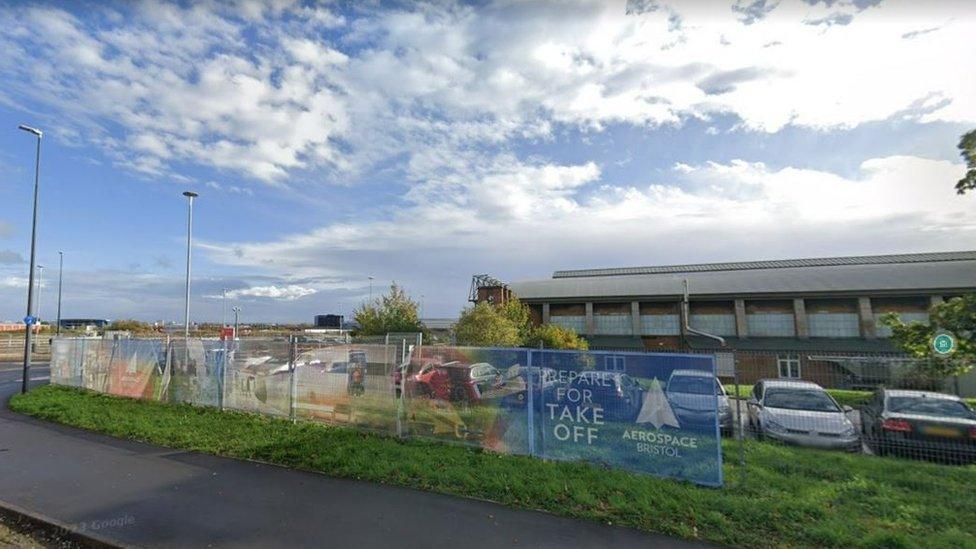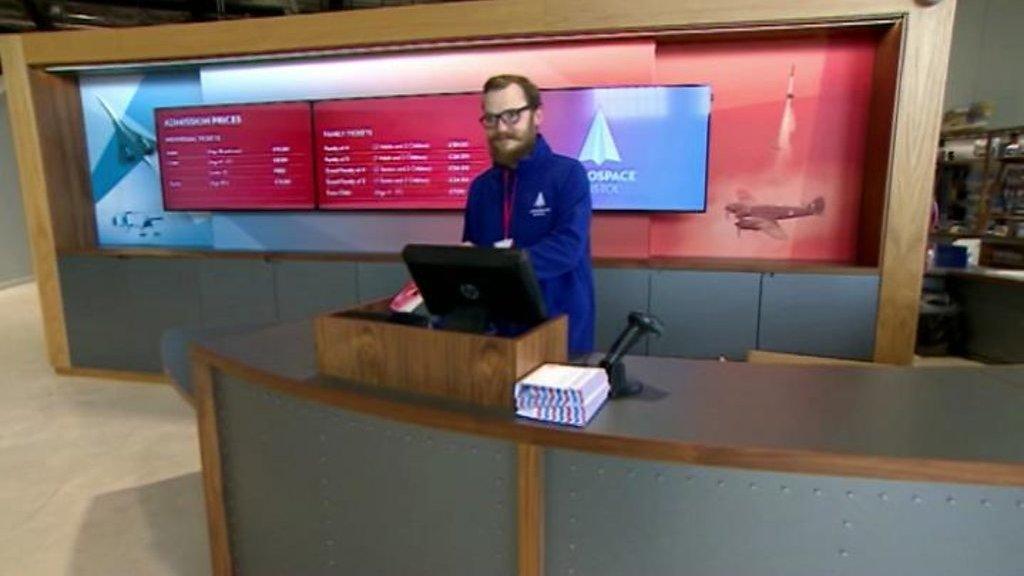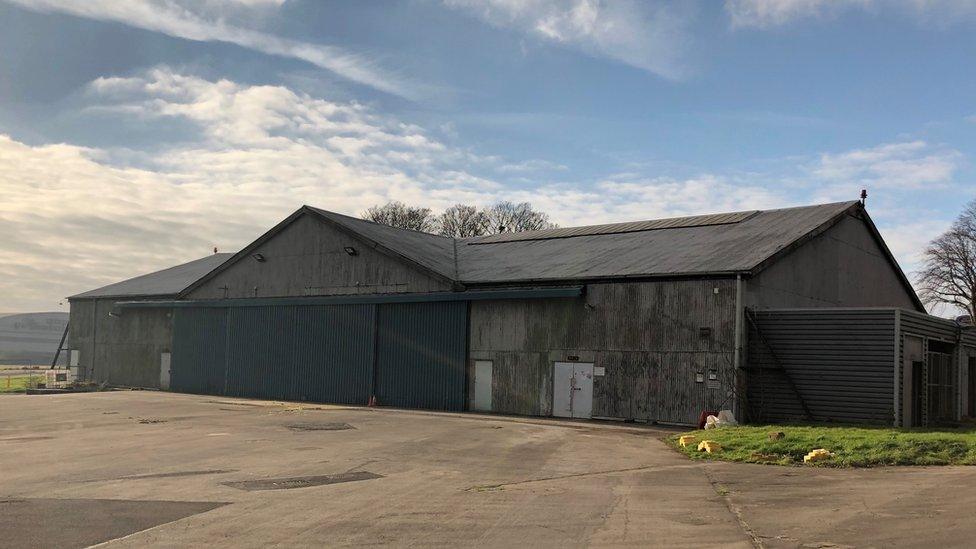Aerospace Bristol museum to be given £470k council bailout
- Published

Aerospace Bristol is set to receive £470,000 in a council bailout after a report showed the museum was struggling to make money.
The pandemic, cost-of-living crisis and increased inflation has resulted in less income, rising bills and fewer school trips to the Filton site.
The money from South Gloucestershire Council will be provided in part by central government funds.
A meeting of full council on Wednesday signed off the proposed bailout.
South Gloucestershire Council cabinet agreed to use up to £316,000 of government money to write off part of the interest and capital repayments on a 10-year loan it has with Bristol Aerospace Collection Trust (BACT), the charity that runs the museum, to "avoid the risk of insolvency".
The authority is also providing it with £61,000 in 2023/24 and £31,000 for the next three years from a second pot of money from Whitehall announced last week, to help increase school trips, the Local Democracy Reporting Service reports.

The museum has been hit by the lack of school trips to the site
The authority's chief financial officer Nina Philippidis told cabinet that £950,000 was outstanding on BACT's loan from the local authority at four per cent interest above the base rate.
She said: "The loan was rearranged in March 2020 as the pandemic commenced and then subsequently in March 2022 following the impact of the Covid-19 Omicron outbreak in November 2021.
"Since reopening, the museum has been further impacted by the cost-of-living crisis with reducing discretionary income and rising utility and interest costs."
She said it was proposed to use South Gloucestershire's share of government money to be distributed from business rates - £315,900 for the council - to write off part of BACT's loan interest and capital repayments "to ensure the ongoing financial sustainability of the museum and avoid any risk of insolvency".
She said the museum had "fundamentally reviewed its operating structure" to reduce its costs while improve its offering to visitors.
Ms Phippidis said the core business was "financially viable" yet the "surpluses are likely to be insufficient over the coming years to cover the annual loan repayment and rapidly rising interest charges".
"Options for addressing the remaining balance on the loan will be developed by officers working with the museum with updates brought back to cabinet over the coming financial year," she added.

Follow BBC West on Facebook, external, Twitter, external and Instagram, external. Send your story ideas to: bristol@bbc.co.uk , external
Related topics
- Published1 November 2022

- Published17 October 2017

- Published4 January 2019
